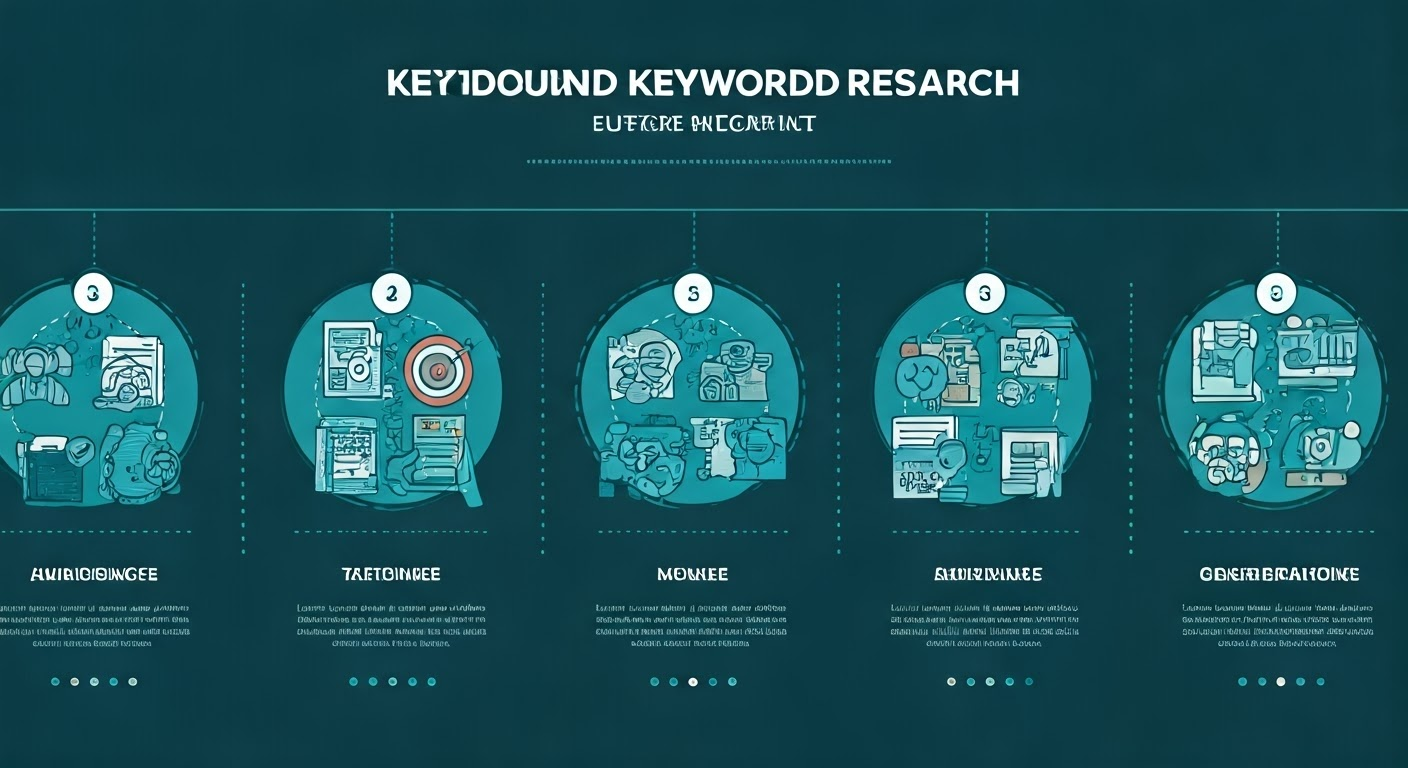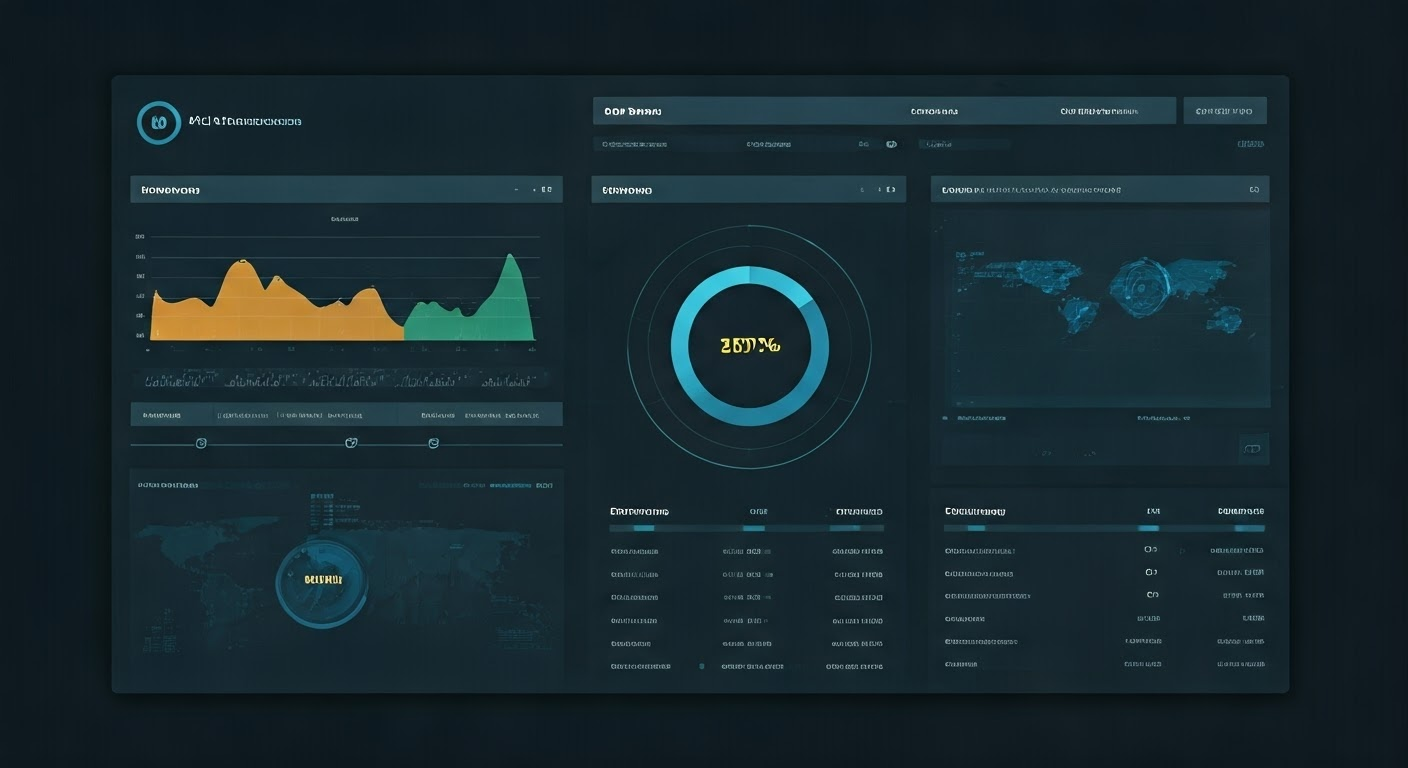January 1, 2025
Master Pay Per Click Keyword Research: Tips for Success

Greg Kopyltsov
Founder
pay per click keyword research


In the world of digital marketing, running successful PPC campaigns revolves around effective keyword research. It's a critical factor that can significantly influence your return on investment. By mastering the art of keyword research, you can ensure your PPC campaigns are highly targeted, reaching the right audience at the right time. This comprehensive guide will equip you with the knowledge and strategies to excel in PPC keyword research and elevate your campaigns to new heights.

PPC keyword research is the process of identifying and analyzing search terms that potential customers use on search engines. It's about uncovering the words and phrases people type in when they're looking for products or services like yours. By understanding these keywords, you can target your ads effectively and drive more qualified traffic to your website.
Essentially, PPC keyword research is about aligning your ads with the language of your target audience. It's about speaking their language and showing up when they're actively searching for what you have to offer.
Keywords are the backbone of your PPC campaigns. They determine where your search ads appear and who sees them. When someone searches on Google or Bing, the search engine's algorithm analyzes the keywords in the search query and displays relevant ads alongside the organic search results.
Effective PPC keyword research ensures that your ads reach the right audience. By targeting relevant keywords, you increase the chances of attracting users who are genuinely interested in your products or services. This, in turn, leads to higher click-through rates (CTR) and a better quality score.
Google Ads, for example, assigns a quality score to your ads based on factors like keyword relevance, landing page experience, and expected CTR. A higher quality score can result in lower ad costs and better ad positions.
To further understand PPC keywords, let's explore three key concepts: search intent, keyword types, and match types. Understanding search intent is crucial. It's about determining the user's goal behind a search query. Are they looking for information, comparing products, or ready to make a purchase? By aligning your keywords and ad copy with search intent, you can deliver a more relevant experience to potential customers.
Keywords can be categorized into different types based on their length, specificity, and relevance to the buying cycle. Some common keyword types include branded keywords (containing your brand name), generic keywords (broad terms related to your industry), and long-tail keywords (longer, more specific phrases).
Match types give you control over how closely your keywords need to match a user's search query for your ad to show. The most common match types include broad match, phrase match, exact match, and negative keywords.

Before you jump into keyword research, it's essential to gather the necessary tools and set up your PPC accounts. Having the right tools at your disposal will streamline the research process and provide you with valuable insights.
Setting up your PPC accounts on platforms like Google Ads is equally important. This step allows you to put your keyword research into action and launch your campaigns effectively.
Several keyword tools can assist you in your PPC keyword research endeavors. One such tool is Google Keyword Planner, a free tool within the Google Ads platform. It provides valuable data on keyword search volume, competition, and suggested bids.
Other popular keyword tools include SEMrush, Ahrefs, and Moz. These tools offer comprehensive keyword research functionalities, including competitor analysis, keyword tracking, and more. They provide in-depth data that can inform your keyword strategy.
For beginners, free keyword tools like Ubersuggest or WordStream's Free Keyword Tool can be a great starting point. These tools offer basic keyword research features without the need for a paid subscription.
To launch and manage your PPC campaigns, you'll need to create accounts on online advertising platforms like Google Ads, Bing Ads, or social media platforms that offer advertising options. Setting up your PPC accounts is relatively simple and straightforward.
When creating your Google Ads account, for example, you'll be guided through a series of steps, including providing your business information, setting up billing, and selecting your campaign settings. The platform provides a user-friendly interface for campaign management.
Each platform may have its own specific requirements and features, so it's a good idea to familiarize yourself with their respective guidelines and best practices.

Effective PPC keyword research is an iterative process that involves several steps. By following these steps, you can develop a targeted keyword list to drive successful campaigns.
From identifying your target audience to refining your keyword list, each stage plays a vital role in maximizing your PPC campaign's effectiveness.
The first step is to thoroughly understand your target audience. Who are you trying to reach with your PPC campaigns? What are their demographics, interests, and pain points? By creating detailed buyer personas, you gain deeper insights into your potential customers.
Consider the specific products or services you offer. What keywords would potential customers use to find your offerings online? Understanding how your audience searches for information related to your niche is crucial.
Conduct market research, analyze your website analytics, and gather customer feedback to create comprehensive buyer personas.
Once you clearly understand your target audience, start brainstorming an initial list of keywords that are relevant to your business, products, or services. Think about the words and phrases potential customers might use when searching for what you offer.
Don't limit yourself to just a few keywords. The goal is to generate as many keyword ideas as possible at this stage. You can expand your list later using keyword research tools.
Include a mix of different keyword types, such as branded keywords (including your brand name), generic keywords (broad terms related to your industry), and long-tail keywords (longer, more specific phrases).
Keyword research tools are invaluable for expanding your initial list and uncovering hidden gems. Tools like Google Keyword Planner, SEMrush, and Ahrefs provide comprehensive keyword data to help you make informed decisions.
Using a free keyword tool or a paid one, enter your initial keywords and explore the suggested keywords. Pay attention to the following metrics:
Not all keywords are created equal. Some keywords may have high search volume but also high competition, making them expensive to target. Others may have low search volume but may be highly relevant to your niche.
It's crucial to strike a balance between search volume and competition. Aim for relevant keywords with a reasonable search volume and a manageable level of competition. Consider long-tail keywords as they tend to have lower competition and can be highly targeted.
Tools like Google Keyword Planner provide insights into keyword competition. Use this information to identify keywords that align with your budget and campaign goals.
Once you have a refined list of keywords, organize them into ad groups based on common themes or product categories. Ad groups are like containers that hold a set of related keywords, ads, and landing pages.
By grouping related terms together, you create a more cohesive and targeted ad experience for your audience. When your keywords are well-organized, it's easier to create relevant ad copy and landing pages that align with the user's search intent.
For example, if you're selling shoes, you might have separate ad groups for running shoes, dress shoes, and sandals. Each ad group would contain keywords specific to those categories.
Negative keywords are just as important as positive keywords. They prevent your ads from showing for irrelevant searches, saving you money and improving your campaign's targeting.
For instance, if you sell only women's shoes, you might add negative keywords like "men's shoes" or "kids' shoes" to your campaigns. This step prevents your ads from appearing for those irrelevant searches and ensures that your budget is used effectively.
Regularly review your search terms report to identify irrelevant terms that are triggering your ads.

As you become more comfortable with PPC keyword research, you can explore advanced techniques to refine your strategy further and gain a competitive edge. These techniques will help you unearth valuable keywords and insights.
From leveraging competitor data to identifying long-tail opportunities, these strategies will elevate your keyword research efforts.
Long-tail keywords are longer, more specific phrases that target a particular niche audience. While they may have lower search volume than broad keywords, they often have higher purchase intent, meaning users searching for them are closer to making a buying decision.
For example, instead of targeting the broad keyword "shoes," you might target the long-tail keyword "best running shoes for flat feet." By incorporating long-tail keywords into your strategy, you can attract highly qualified leads more likely to convert.
Long-tail keywords play a crucial role in niche targeting, allowing you to tailor your ads to a highly specific audience actively searching for your offerings.
Analyzing your competitors' keywords can provide valuable insights for your PPC campaigns. By understanding which keywords your competitors are bidding on, you can identify new opportunities and gain a competitive advantage in the digital marketing landscape.
Use tools like SEMrush or Ahrefs to conduct competitor keyword research. Analyze their top-performing keywords and identify gaps in your strategy. Incorporate relevant competitor keywords into your campaigns to expand your reach and target a wider audience.
Consider creating a table like the one below to keep track of your competitors' keywords:
Competitor
Keyword
Search Volume
Competition
Competitor A
best running shoes
10,000
High
Competitor B
women's athletic shoes
5,000
Medium
Competitor C
comfortable shoes for walking
1,000
Low
Choosing the right keywords is just the first step. To maximize the effectiveness of your PPC campaigns, it's crucial to continuously monitor their performance and make necessary adjustments.
Regular optimization ensures that your ads remain relevant, engaging, and cost-effective.
PPC keyword research is not a one-time task. Regularly monitor the performance of your chosen keywords to ensure they're delivering the desired results. Track key metrics like click-through rate (CTR), conversion rate, and cost per conversion.
If certain keywords aren't performing well, consider pausing them or adjusting their bids. It's essential to be proactive in identifying and addressing underperforming keywords to optimize your campaign's ROI.
Monitor changes in search engine results pages (SERPs) and industry trends. Adapting to these changes ensures that your keywords remain relevant and continue to drive valuable traffic to your website.
A/B testing is a powerful technique to optimize your PPC campaigns. Create multiple versions of your ads with different headlines, ad copy, and calls to action. By testing different elements of your ads, you can identify what resonates best with your target audience.
Continuously test and refine your ads to improve their relevance and click-through rates. Higher CTRs often lead to improved quality scores, lower ad costs, and better ad positions.
Use A/B testing to experiment with different landing page variations for specific keywords or ad groups. Ensure that your landing pages provide a seamless and relevant experience for users who click on your ads.

PPC keyword research can present some common challenges, such as dealing with highly competitive keywords or finding relevant long-tail keywords for your niche.
By understanding and addressing these challenges strategically, you can refine your keyword research.
To tackle high competition keywords effectively, focus on refining your selection process. Utilize Google Ads to identify lucrative PPC keywords and leverage negative keywords to optimize your campaigns. Conduct thorough keyword research using tools like Keyword Planner to unearth relevant terms. Enhance your ad copy to align with searcher intent and boost Quality Score. Tailor your landing pages for specific keywords to improve the user experience. Constantly monitor and adjust your bid strategy to stay competitive. Employ a strategic approach to outshine competitors and maximize your PPC ROI.
While high-volume keywords may seem appealing, they may not always be relevant to your specific products or services. Long-tail keywords with lower search volume often convert better because they target a highly specific user intent.
Consider using a combination of broad match and phrase match to target a wider range of related searches. By casting a wider net with your keyword targeting, you increase your chances of capturing relevant traffic.
Regularly review the performance of your low-volume keywords and make necessary adjustments to your bids and targeting.

To gauge the effectiveness of your PPC keyword research, it's essential to track and analyze key metrics that directly impact your campaign goals. By understanding what's working and what's not, you can optimize your strategies for better results.
Measuring your PPC keyword research's success ensures that you're on track to achieve your business goals and maximize your return on investment.
Several key metrics provide insights into your PPC keyword research's success. Track your click-through rate (CTR) to understand how often users find your ads relevant and engaging enough to click on.
Monitor your conversion rate to see how many users are taking desired actions on your website, such as making a purchase or filling out a form. A high conversion rate indicates that your keywords are attracting the right audience and that your landing pages are effectively guiding users toward conversion.
Analyze your return on investment (ROI) to measure the overall profitability of your PPC campaigns. A positive ROI means you're generating more revenue than you're spending on your campaigns.
Effective PPC keyword research directly impacts your ROI and ROAS by ensuring that your ads reach the most qualified audience. When your ads are shown to users actively searching for your products or services, the likelihood of conversions increases, leading to a higher ROI.
By targeting the right keywords, you reduce wasted ad spend on irrelevant clicks and impressions. This optimization allows you to allocate your budget efficiently and maximize your ROAS.
Regularly analyze your campaign performance, make data-driven decisions, and optimize your keyword strategy to achieve your desired campaign goals.
KeywordSearch has an AI Audience builder that helps you create the best ad audiences for YouTube & Google ads in seconds. In a just a few clicks, our AI algorithm analyzes your business, audience data, uncovers hidden patterns, and identifies the most relevant and high-performing audiences for your Google & YouTube Ad campaigns.
You can also use KeywordSearch to Discover the Best Keywords to rank your YouTube Videos, Websites with SEO & Even Discover Keywords for Google & YouTube Ads.
If you’re looking to SuperCharge Your Ad Audiences with AI - Sign up for KeywordSearch.com for a 5 Day Free Trial Today!
Mastering Pay-Per-Click keyword research is crucial for a successful digital marketing strategy. Understanding search intent, utilizing the right tools, and refining your keywords are essential steps. Advanced techniques like exploring long-tail keywords and monitoring performance continuously can further enhance your campaigns. Overcoming challenges such as high competition and adapting to low-volume keywords requires strategic adjustments. By measuring key metrics and analyzing ROI, you can refine your approach for better results. Stay updated, test different strategies, and optimize your campaigns for maximum impact. With the right keywords, your PPC endeavors can drive significant growth and success.
Regularly update your PPC keyword list to ensure it remains relevant and aligned with search trends. It's a good idea to review and update your keyword list quarterly or whenever you make significant changes to your products or services.
While SEO and PPC have different goals, you can strategically use the same keywords for both. However, it's essential to tailor your approach and keyword targeting based on the specific goals of each channel as part of your digital marketing strategy.
Broad match keywords allow your ads to show for a wider range of related searches, while exact match keywords require the user's search query to exactly match your keyword phrase. They offer different levels of keyword targeting.
Consider factors like your campaign goals, target audience, competition, and maximum bid. Tools like Google Keyword Planner provide estimated costs, but continuous monitoring and optimization are crucial.
Yes, several free tools can assist with PPC keyword research. Google Trends, for example, provides insights into keyword search volume over time. Other free options include Ubersuggest and WordStream's Free Keyword Tool.
Case studies showcase real-world examples and provide inspiration for your campaigns. Numerous businesses have achieved remarkable results through effective PPC keyword research, demonstrating the positive impact. By incorporating these learnings into your strategy, you can improve your chances of success.
Small businesses with limited marketing budgets often find success in PPC marketing by focusing on highly targeted, niche keywords. Their laser focus on relevant terms and lower bidding costs allows them to compete effectively against larger companies. By implementing similar strategies tailored to your industry and target audience, you, too, can achieve significant results through strategic PPC marketing efforts. Remember, success in PPC marketing, even for small businesses, is an ongoing process of research, optimization, and adaptation.